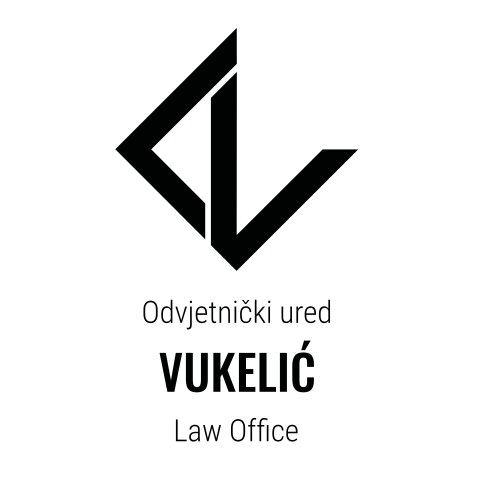Best Contract Lawyers in Croatia
Share your needs with us, get contacted by law firms.
Free. Takes 2 min.
Or refine your search by selecting a city:
List of the best lawyers in Croatia
About Contract Law in Croatia
Contract law in Croatia is primarily governed by the Croatian Obligations Act, which provides the framework for creating, executing, and enforcing contracts. The legal system aims to uphold fairness, protect the rights of parties involved, and ensure that contracts abide by public policy and moral standards. Contracts can be written, oral, or implied, and they cover a wide range of agreements, from commercial transactions to personal arrangements.
Why You May Need a Lawyer
There are various situations where you may require legal assistance in the realm of contract law. Seeking a lawyer's expertise can be essential when drafting or reviewing complex contracts, particularly in business settings. Legal help may also be necessary to resolve contract disputes, negotiate terms, pursue litigation in the event of a breach, or understand the implications of contract clauses specific to Croatian law. Additionally, having legal guidance helps ensure compliance with local laws and reduces the risk of unfavorable outcomes.
Local Laws Overview
Croatia’s contract law highlights several key aspects, including freedom of contract, the requirement for capacity, and adherence to the principles of good faith. Key statutes within the Croatian Obligations Act stipulate responsibilities relating to offer and acceptance, performance obligations, and breach of contract, along with provisions for liability and remedial actions. Certain contracts may also require notarization, making awareness of these nuances critical for effective legal compliance.
Frequently Asked Questions
What constitutes a valid contract under Croatian law?
A valid contract in Croatia requires mutual consent between competent parties, a lawful object, sufficiency of consideration, and adherence to any formal requirements stipulated by law, such as written documentation for certain types of agreements.
Can contracts be oral in Croatia?
Yes, contracts can be oral in Croatia, although certain contracts must be in writing to be enforceable, such as sales contracts of real estate. It is generally advisable to document agreements in writing to avoid disputes.
What is the statute of limitations for contract disputes in Croatia?
The general statute of limitations for contractual claims in Croatia is five years, though this period can vary based on the nature of the contractual obligation or specific legal provision applicable to the type of contract.
How are disputes over contract interpretation resolved?
Croatian courts prioritize the intention of the parties when resolving disputes over interpretation. If the contract language is unclear, supplementary means such as parties' conduct, industry practices, and the contract's purpose may be considered.
What remedies exist for breach of contract?
Remedies typically include monetary damages, specific performance, contract rescission, and restitution. The appropriate remedy depends on the nature and extent of the breach, as well as the specific terms outlined in the contract.
Are penalty clauses enforceable in Croatian contracts?
Penalty clauses aiming to punish a breaching party are generally unenforceable under Croatian law. However, pre-estimated and reasonable liquidated damages clauses are permitted if they aim to compensate the non-breaching party.
Can a contract be modified once signed?
Yes, a contract can be amended if both parties agree to the changes. Amendments should be documented in writing, especially for contracts that nave statutory writing requirements under Croatian law.
What should be included in a commercial contract?
A commercial contract should clearly outline parties' identities, contractual terms, consideration, performance obligations, timelines, dispute resolution methods, and any specific conditions or warranties applicable to the agreement.
How is force majeure treated in Croatian contract law?
Force majeure clauses, which excuse parties from performance due to extraordinary circumstances beyond their control, are recognized in Croatian law. However, the specific events covered must be clearly defined within the contract.
Is it necessary to notarize all contracts in Croatia?
Not all contracts require notarization; however, certain agreements, such as those involving real estate transactions, need to be notarized to be valid and enforceable.
Additional Resources
Individuals seeking further assistance can explore resources offered by the Croatian Chamber of Commerce, the Croatian Bar Association, and related legal aid organizations. Governmental bodies like the Ministry of Justice also provide valuable information and contacts for legal support and dispute resolution.
Next Steps
If you need legal assistance in contract matters, consider consulting a specialized attorney well-versed in Croatian contract law. Begin by gathering all relevant documents and evidence related to your contractual issue, then reach out to legal professionals or legal aid services for advice. During consultations, enquire about their experience, legal fees, and potential outcomes to make informed decisions. Engaging legal counsel early can significantly impact the clarity, enforceability, and success of your contractual dealings.
Lawzana helps you find the best lawyers and law firms in Croatia through a curated and pre-screened list of qualified legal professionals. Our platform offers rankings and detailed profiles of attorneys and law firms, allowing you to compare based on practice areas, including Contract, experience, and client feedback.
Each profile includes a description of the firm's areas of practice, client reviews, team members and partners, year of establishment, spoken languages, office locations, contact information, social media presence, and any published articles or resources. Most firms on our platform speak English and are experienced in both local and international legal matters.
Get a quote from top-rated law firms in Croatia — quickly, securely, and without unnecessary hassle.
Disclaimer:
The information provided on this page is for general informational purposes only and does not constitute legal advice. While we strive to ensure the accuracy and relevance of the content, legal information may change over time, and interpretations of the law can vary. You should always consult with a qualified legal professional for advice specific to your situation.
We disclaim all liability for actions taken or not taken based on the content of this page. If you believe any information is incorrect or outdated, please contact us, and we will review and update it where appropriate.
Browse contract law firms by city in Croatia
Refine your search by selecting a city.

















